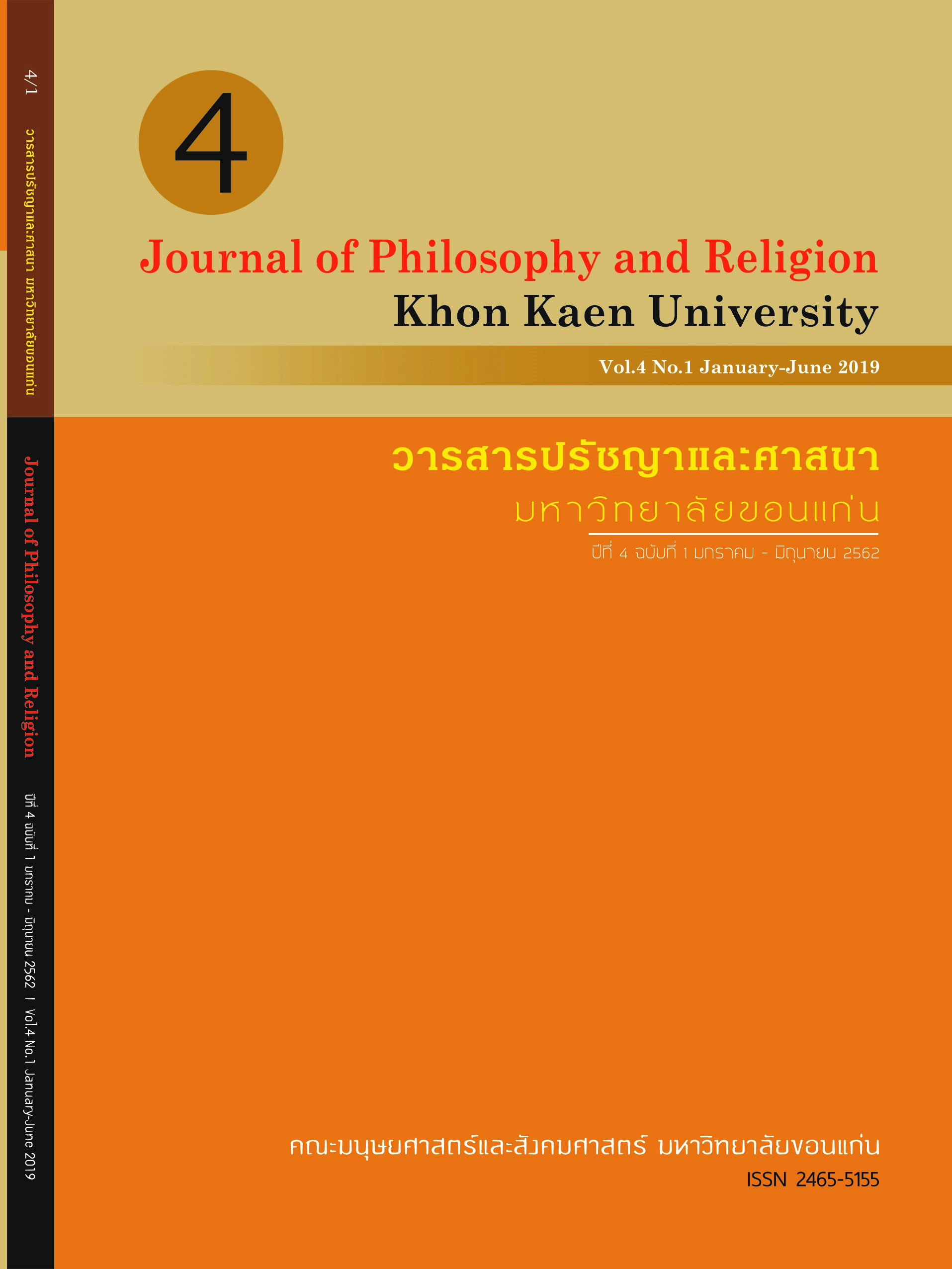The Development of Quality of Life in Accordance with Three Bases of Meritorious Action of Buddhist Laypersons in Khoo Muang Village, Wapeepathum District, Mahasarakham Province
Main Article Content
Abstract
The aims of this research were: 1) to study the current conditions problem of the quality of life in accordance with the base of meritorious
action of Buddhist laypersons in Khoo Muang village, Wapeepathum district, Mahasarakham province; 2) to study the results of the development of the
quality of life according to the base of meritorious action of Buddhist laypersons in the research area. This qualitative research was conducted
from the documents and fieldwork together with the participatory observation and in-depth interview. The tools used were the observation and interview
forms before the data were analyzed by the descriptive analysis. The research results revealed that, current conditions and problems
in the development of quality of life according to the base of meritorious action of Buddhist laypersons in Khoo Muang village were the personal,
family and social problems: for personal problems, most of them have concerns about unproductive agricultural outputs and debt problems;
for family problems, there are the conflicts within the family especially between husband and wife leading to the divorce of many families; for social problems,
the major problem is the drug problem resulting from the curious try of children and youth, the lack of parental care and an environment conducive
to addiction. The results of two days activity of quality of life development according to the base of meritorious action of the villagers by 1) meritorious
action consisting of generosity or giving; 2) meritorious action consisting of observing precepts; 3) meritorious action consisting of mental development
That is 3 months after the event, the results showed that the outcomes of the activities were good for the people to solve their problems. For the personal
problem, the villagers were able to use the precepts to solve the problems positively affecting to the others. For the family problems, the members of
the family have the right view in the practices of generosity, precept observation and mental development. For the social problems, they have
public mind and are generous to the community; the villagers perform generosity, devotion and sharing to the others by giving money and necessities. It is said that the application of the base of meritorious action could develop the quality of life of the villagers in the research area.
Article Details
Issue
Section
Academic Article


